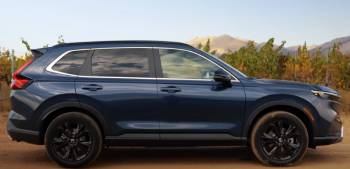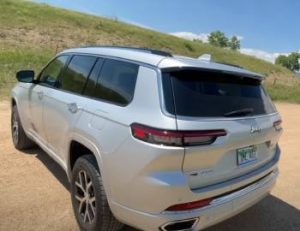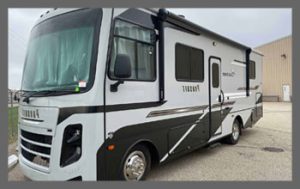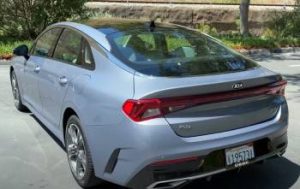The hybrid SUV market is growing by leaps and bounds, with auto enthusiasts and environmentally-conscious drivers alike turning to these eco-friendly options. Two of the most talked-about models in recent times are the Honda CR-V Hybrid and the Hyundai Tucson Hybrid.
Let’s deep dive into what sets these two vehicles apart, and which one may be the best fit for your driving needs.
A Brief Comparison Table
| Feature/Aspect | Honda CR-V Hybrid | Hyundai Tucson Hybrid |
| Engine | 2.0-liter four-cylinder + Electric | 1.6-liter turbocharged + Electric |
| Total Horsepower | ~212 hp | ~230 hp |
| Transmission | eCVT | 6-speed automatic |
| Standard AWD | Yes | Available, not standard |
| City MPG | ~40 | ~37 |
| Highway MPG | ~35 | ~36 |
| Touchscreen Size | 7-inch | 8-inch (10.25-inch optional) |
| Safety Suite | Honda Sensing | Hyundai SmartSense |
| Starting Price | Slightly higher | Typically lower |
| Limited Warranty | 3 years/36,000 miles | 5 years/60,000 miles |
| Powertrain Warranty | 5 years/60,000 miles | 10 years/100,000 miles (battery) |
Honda CR-V Hybrid: The Pros

- Fuel Efficiency:
The Honda CR-V Hybrid boasts impressive miles per gallon (MPG) figures. For those long commutes or weekend getaways, you can rely on this hybrid to save some bucks at the pump.
- Performance:
The CR-V Hybrid comes equipped with a 2.0-liter four-cylinder engine coupled with an electric motor. The result? Smooth acceleration and impressive power for an SUV of its size.
- Interior Space:
Generous legroom and a spacious cargo area make the CR-V Hybrid a good pick for families or those who need ample space for their adventures.
Honda CR-V Hybrid: The Cons
- Infotainment System:
Some users have found the touchscreen interface to be slightly less intuitive than competitors.
- Price:
The CR-V Hybrid tends to be on the pricier side compared to other hybrid SUVs, especially when you factor in additional features and trims.
Also Read: Is Having AAA Tire And Wheel Insurance Wise?
Hyundai Tucson Hybrid: The Pros

- Modern Design:
Hyundai has been making waves with its cutting-edge designs, and the Tucson Hybrid is no exception. Its sharp lines and contemporary look give it a unique aesthetic edge.
- Advanced Safety Features:
With Hyundai’s SmartSense, drivers get a suite of safety features such as forward collision-avoidance assist and lane following assist, ensuring peace of mind on the road.
- Warranty:
Hyundai is known for its generous warranties, and the Tucson Hybrid benefits from this tradition with its extensive powertrain warranty.
Hyundai Tucson Hybrid: The Cons
- Handling:
Some drivers might find the Tucson Hybrid’s handling to be a tad soft, especially during more aggressive maneuvers.
- Infotainment System:
Similar to the CR-V Hybrid, there are occasional gripes about the usability of the touchscreen system.
The Showdown: Which One Wins?
Choosing between the Honda CR-V Hybrid and Hyundai Tucson Hybrid is like picking between two flavors of your favorite ice cream. Both have their unique merits and minor setbacks. Ultimately, your decision may come down to brand loyalty, aesthetic preferences, or specific features that align with your personal needs.
Key Differences Between Honda CR-V Hybrid and Hyundai Tucson Hybrid
While both the Honda CR-V Hybrid and the Hyundai Tucson Hybrid fall into the hybrid SUV category, they have distinct differences that set them apart. Distinguishing between these two vehicles involves looking into their performance, technology, design, and price points. Here’s an in-depth look at their major differences.
- Performance and Efficiency
- Honda CR-V Hybrid:
- The CR-V Hybrid is powered by a 2.0-liter four-cylinder engine and two electric motors, which combined, produce a total system output of around 212 horsepower.
- It uses an electronic continuously variable transmission (eCVT).
- Its All-Wheel-Drive system is standard, ensuring better traction in diverse road conditions.
- As for efficiency, the CR-V Hybrid boasts an EPA estimated fuel economy of approximately 40 MPG in the city and 35 MPG on the highway.
- Hyundai Tucson Hybrid:
- The Tucson Hybrid has a 1.6-liter turbocharged four-cylinder engine paired with an electric motor, churning out a combined 230 horsepower.
- Unlike the CR-V, the Tucson employs a 6-speed automatic transmission.
- All-Wheel-Drive is available, but it’s not standard across all trims.
- It slightly edges out the CR-V in fuel economy, with an estimated 37 MPG in the city and 36 MPG on the highway.
- Technology and Infotainment
- Honda CR-V Hybrid:
- Comes with a 7-inch touchscreen infotainment system, supporting both Apple CarPlay and Android Auto.
- Offers features like wireless phone charging in its top-end model.
- Some users feel the system is less intuitive and could use an interface update.
- Hyundai Tucson Hybrid:
- It stands out with a larger 8-inch (or optional 10.25-inch) touchscreen system.
- Also supports Apple CarPlay and Android Auto, along with other connected services.
- Features like wireless charging, a digital key, and Blue Link connected car services give it an edge in the tech department.
- Design and Aesthetics
- Honda CR-V Hybrid:
- The CR-V Hybrid maintains a conservative yet stylish design, aligning with Honda’s traditional aesthetics.
- It offers spacious interiors with quality materials, ensuring comfort and practicality.
- Hyundai Tucson Hybrid:
- The Tucson Hybrid boasts a more futuristic and aggressive design with its parametric dynamics.
- The interior feels modern and upscale, with a digital instrument cluster and a minimalist console.
- Safety Features
- Honda CR-V Hybrid:
- It’s packed with Honda Sensing Suite, which includes adaptive cruise control, lane-keeping assist, and collision mitigation braking.
- The CR-V has consistently scored high in safety ratings, cementing its reputation in this domain.
- Hyundai Tucson Hybrid:
- Hyundai SmartSense, its safety suite, offers forward collision-avoidance assist, lane following assist, and blind-spot collision warning.
- The Tucson also scores well in safety tests, making it a reliable choice for families.
- Price and Warranty
- Honda CR-V Hybrid:
- It has a starting price that can be a bit on the higher side, especially when adding premium trims and features.
- Honda offers a limited warranty covering three years or 36,000 miles and a powertrain warranty for five years or 60,000 miles.
- Hyundai Tucson Hybrid:
- Typically, the Tucson Hybrid comes in with a slightly lower base price.
- Hyundai is known for its extensive warranties. Their hybrid battery is covered for 10 years or 100,000 miles, and they offer a limited warranty for five years or 60,000 miles.
Also Read: Differences Between PhotoSync And Ceramic Tint.
Frequently Asked Questions (FAQs)
In terms of dimensions, they’re quite comparable. However, the Tucson might have a slight edge in terms of overall length and width, offering a bit more cabin space.
While “best” is subjective, the Tucson Hybrid is certainly among the top contenders. Its combination of design, features, and warranty makes it a strong competitor.
Besides the Hyundai Tucson Hybrid, the Toyota RAV4 Hybrid and Ford Escape Hybrid are also direct competitors to the Honda CR-V Hybrid.
Most users find the CR-V Hybrid to be fairly quiet, especially in electric mode. However, like many hybrids, noise can increase slightly under hard acceleration.
Both the Honda CR-V Hybrid and Hyundai Tucson Hybrid score high on reliability. Historically, Honda has had a slight edge in terms of longevity, but Hyundai’s impressive warranty is hard to overlook.
Hyundai’s hybrid batteries are designed to last a long time, often well beyond 100,000 miles. Additionally, Hyundai offers an impressive warranty for its hybrid batteries, ensuring peace of mind for potential buyers.
Conclusion
In the battle between the Honda CR-V Hybrid and Hyundai Tucson Hybrid, it’s clear that both vehicles have a lot to offer. The choice will ultimately come down to personal preference. Either way, you’re making a green choice that combines sustainability with style and function.
While both the Honda CR-V Hybrid and Hyundai Tucson Hybrid have their strengths and weaknesses, your choice will largely depend on what you prioritize more: whether it’s design, tech, performance, or price. Both vehicles are compelling options in the hybrid SUV market.



